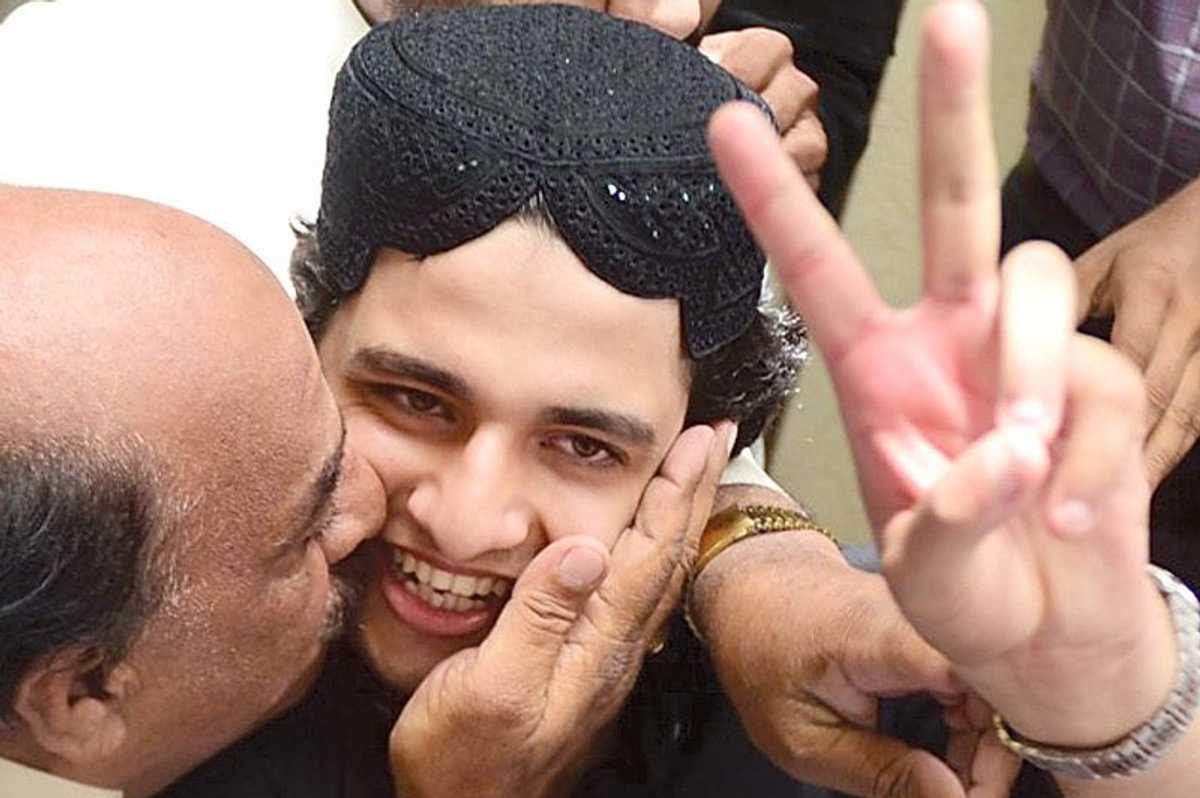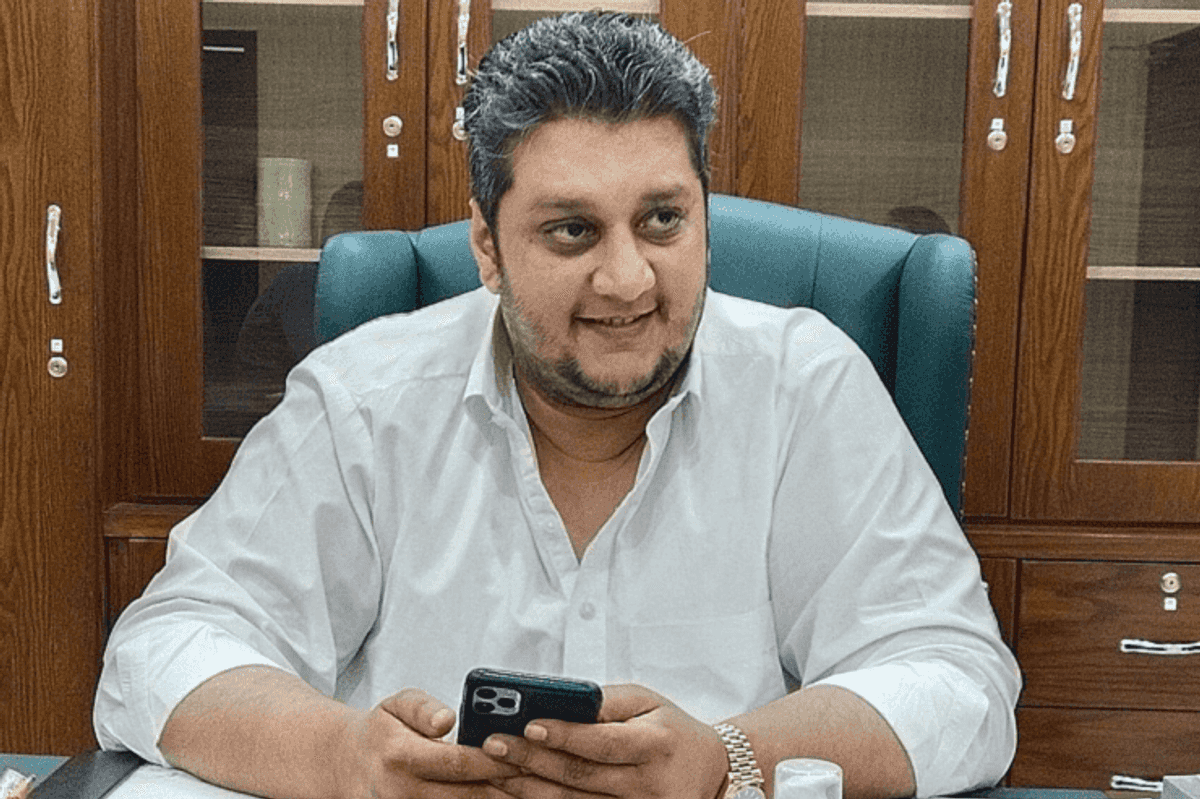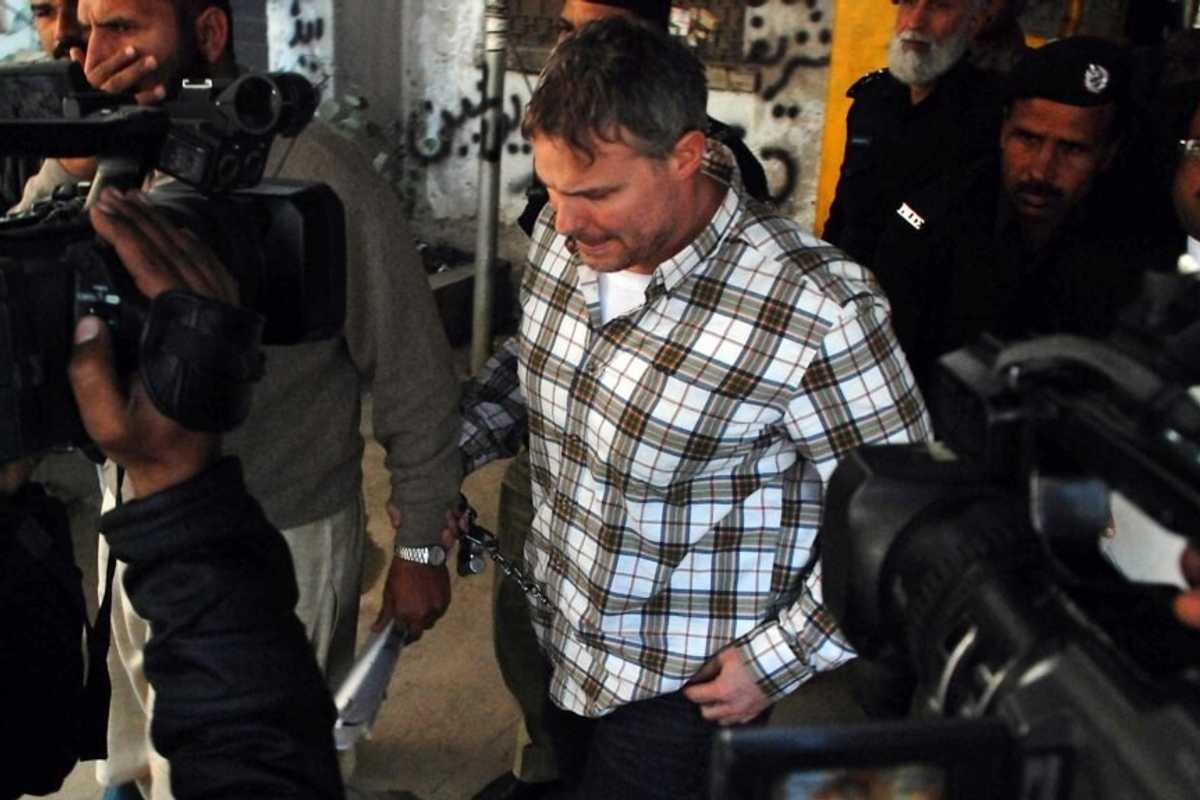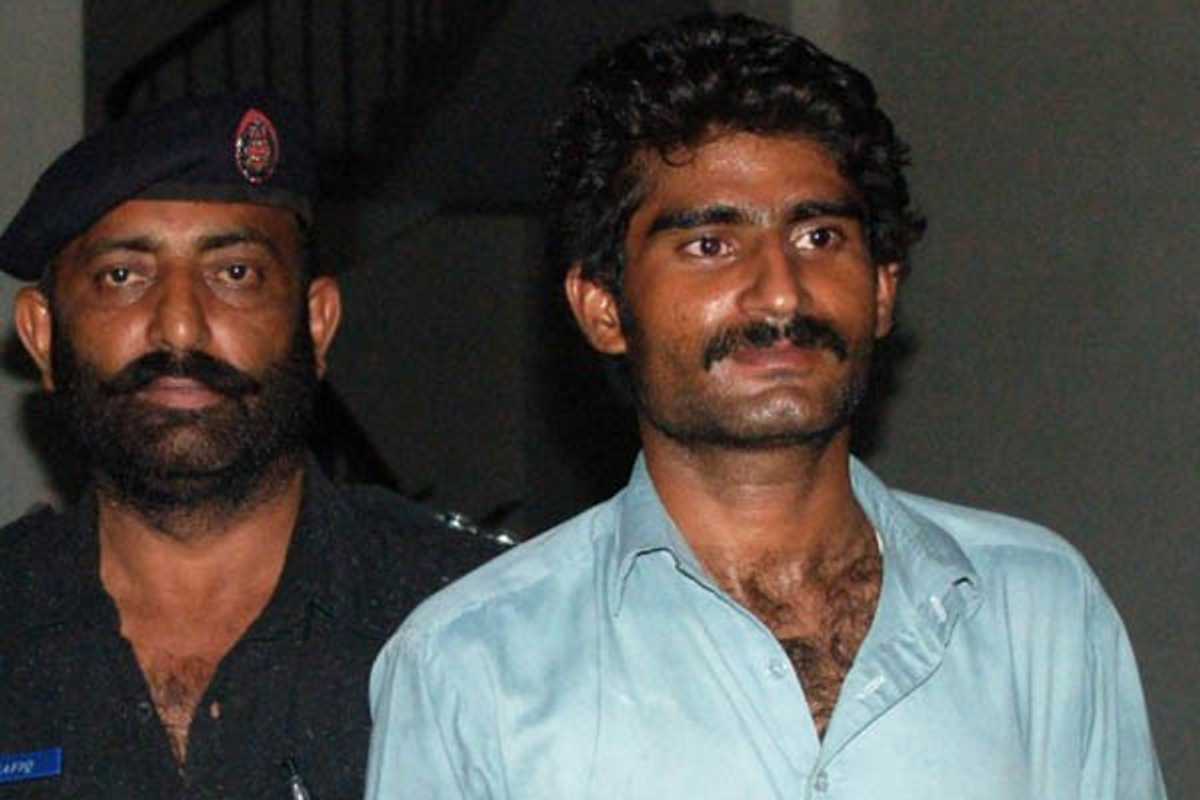How Pakistan’s elite gets away with murder
Karsaz case raises concerns about how influential people in Pakistan use diyat and qisas laws

Zain Ul Abideen
Senior Producer
Zain Ul Abideen is an experienced digital journalist with over 12 years in the media industry, having held key editorial positions at top news organizations in Pakistan.

After the Karsaz incident, a video of Natasha Danish went viral on social media, where she was heard saying, "Tum mere baap ko nahi jante" (You don't know my father).
Nukta
The diyat and qisas laws in Pakistan are often exploited by the wealthy to avoid accountability
Activists and lawyers have criticized the misuse of these laws and called for reforms in the legal system
When Natasha Danish, charged in connection with last month’s deadly incident in a neighborhood in Karachi, Pakistan, was granted bail by a local court, it reinforced the perception that yet another influential figure has seemingly escaped serious legal consequences for the deaths of two innocent people.
The victim's family informed the court that they had forgiven Natasha "in the name of Allah". She remains behind bars in a drug case in which she was booked after her medical report showed she was under the influence of methamphetamine while driving.
The case reignited concerns about how Pakistan’s elite often manipulate the legal system—sometimes by securing forgiveness in the name of God, and other times by exploiting the Diyat (blood money) and Qisas (retribution) laws to evade justice.
What is the Karsaz case?
On August 19, Natasha Danish was driving her SUV at breakneck speed in a service lane on Karsaz Road when she collided with three motorcycles and another car.
The accident resulted in the deaths of 60-year-old Imran Arif and his 22-year-old daughter Amna. Three others were also injured in the crash. The CCTV footage of the incident shows the SUV speeding through the narrow service lane just before the fatal collision.
Following the crash, Natasha Danish was arrested and charged with manslaughter. However, earlier this month, the family of the victims unexpectedly pardoned her, allowing her to secure bail in the case.
According to her counsel, the family had forgiven her “without any blood money,” a right afforded to them under Pakistan’s qisas and diyat laws.
Another 'spoiled kid' runs over six people in Karachi's Karsaz road, leaving two dead on the spot.
The girl driving this vehicle was said to be the daughter of a well-known textile company's director.
The vehicle is registered under GulAhmed Wind Power LTD. #Karsazaccident pic.twitter.com/tkn7EHuwJE
— Kashan Bhatti (@MkashanBhatti_) August 19, 2024
This legal framework allows families of victims to pardon the accused, either with or without financial compensation.
This incident has sparked widespread outrage, with many questioning how affluent individuals often exploit the legal system to avoid accountability.
Critics argue that the diyat and qisas laws are frequently used by the wealthy to effectively get away with murder, particularly in cases where the victims are from poorer backgrounds and lack the resources to pursue justice.
The Karsaz accident is similar to several high-profile cases in recent years where influential people have evaded punishment using the same legal mechanisms.
Checkered history
Shahrukh Jatoi

One such case is the 2012 murder of Shahzeb Khan, a young man who was gunned down in Karachi by Shahrukh Jatoi, the son of a powerful feudal lord.
Initially sentenced to death, Jatoi was eventually acquitted after Shahzeb’s family "forgave" him, reportedly under immense pressure from influential quarters.
Despite public outcry, the family’s decision led to Jatoi’s release, highlighting how the powerful can influence the legal process.
Jam Awais

Nazim Jokhio, a social activist from Sindh, was brutally murdered in November 2021 after he filmed and posted videos online showing foreign guests of a local political figure, PPP MPA Jam Awais, hunting houbara bustards, a protected bird species, near Karachi. Jokhio confronted the hunters, which led to his abduction and subsequent murder at the farmhouse of Jam Awais.
Despite public outrage and initial arrests, Jokhio's family later accepted a settlement under qisas and diyat laws, resulting in the acquittal of Jam Awais and other accused.
The case drew criticism for how Pakistan's legal system, particularly these laws, is exploited by influential individuals to escape justice, sparking calls for reform.
Raymond Davis

Another notable case is that of Raymond Davis, a CIA contractor who killed two men in Lahore in 2011. Davis claimed self-defense, and after intense diplomatic negotiations between the United States and Pakistan, the families of the victims accepted a financial settlement under Pakistan’s diyat laws.
The move led to Davis’ release, but it sparked widespread criticism, with many accusing the government of allowing international pressure to override justice.
Mustafa Kanju
In 2015, another case shook the nation when Mustafa Kanju, the son of former Minister of Foreign Affairs Siddique Kanju, was accused of killing 16-year-old Zain in a shooting incident in Lahore.
Kanju was eventually acquitted after the victim’s family “pardoned” him, allegedly due to coercion or compensation.
Muhammad Waseem

Qandeel Baloch, a social media star, was murdered by her brother Muhammad Waseem in 2016 in a so-called "honor killing" after her online activities were deemed shameful by her family.
The brother was freed by a Pakistan appeals court after the deceased's heirs pardoned the killer. At the time of Qandeel Baloch’s murder, Pakistan law allowed a murder victim’s family to pardon a convicted killer.
However, due to public outrage, the case led to significant legal reforms, including limiting the application of qisas in honor killings, but it remains a notable example of how such laws were previously exploited.
Cases like these, including the latest Karsaz incident, have brought renewed attention to the structural flaws within Pakistan’s justice system.
The diyat and qisas laws, while rooted in Islamic principles of mercy, are seen by many as a tool for the rich to evade justice. Families, often under pressure or facing financial hardships, may feel compelled to accept settlements or offer pardons.
The case also draws comparisons to the notorious honor killings in Pakistan, where perpetrators often go unpunished due to the victim's family offering a pardon.
'Miscarriage of justice'
Activist and lawyer Jibran Nasir, commenting on the Karsaz case, emphasized the importance of understanding the differences between compoundable and non-compoundable offenses, especially when it comes to public perception and media reporting on such incidents.
“Compoundable offenses are those in which victims, or in case of their death, legal heirs, have the option to forgive the accused and settle through monetary compensation,” Nasir explained. “Non-compoundable offenses are those considered crimes against society, where no private person—whether victim or heir—can forgive the offense.”
In the Karsaz case, Nasir pointed out that two FIRs were registered. The first, for the accident, involves several sections of the Pakistan Penal Code (PPC) and the Provincial Motor Vehicle Ordinance 1965. Among them, Sections 320 (causing death through reckless driving), 322 (unintentional killing), and 337G (injuring due to negligent driving) are compoundable, allowing the victims’ legal heirs to settle. However, Sections 279 (rash driving) and 427 (mischief causing damage) under the PPC, and Section 100 of the Provincial Motor Vehicle Ordinance (driving under the influence of drugs or alcohol), are non-compoundable, meaning Danish must face trial for these charges.
Nasir further noted that any pardon under compoundable offenses requires court approval, although such approval is rarely denied.
He also criticized the handling of the second FIR in the case, which was registered under Section 11 of the Prohibition (Enforcement of Hadd) Order 1979 for consuming intoxicants.
"The police have applied the wrong section. Methamphetamine, commonly known as 'ice,' is not a scheduled drug under the 1979 Order," he said. "The correct charges should have been under the Control of Narcotics Substances Act of 1997, as Methamphetamine is a prohibited psychotropic drug under this law. These offenses are also non-compoundable, meaning she would have to face trial."
Nasir underscored a troubling trend in Pakistan's legal system, where some courts have allowed non-compoundable offenses to be settled.
"Unfortunately, a perverse practice arose due to ill-reasoned judgments by the High Court, such as in the case of Ashique Solangi vs. The State," Nasir stated. "Courts were permitting non-compoundable offenses to be compounded in cases where both types of offenses were involved, as the punishment for the compoundable offense was far greater."
He referenced the Nazim Jokhio case as a recent example of this legal anomaly. "Nazim's legal heirs settled the murder offense by accepting diyat, and the courts allowed the accused to be acquitted for kidnapping as well," Nasir said. "This was a grave miscarriage of justice, enabled by the corruption and incompetence that plagues both the prosecution and the judiciary."
Nasir concluded by referencing a Supreme Court decision that reaffirmed the proper handling of such cases. "The Supreme Court, in the case of Moinuddin & Others vs. The State, made it clear that non-compoundable offenses cannot be forgiven, no matter the settlement on the compoundable ones. It's imperative that we follow this ruling to ensure justice."
Systemic issues
Senior lawyer Shaukat Hayat also weighed in on the legal aspects of the case, explaining the origins and applications of qisas and diyat laws, which were introduced in 1979 during General Zia-ul-Haq's regime.
"Section 345 of the Pakistan Penal Code specifies which offenses are compoundable, including murder," Hayat said. "Under this law, the legal heirs of a victim can forgive the perpetrators, even without demanding qisas."
However, if qisas is sought, Hayat explained, the government has set a specific compensation amount. "The price of qisas is based on 30,630 grams of silver, which was roughly PKR 4.3 to 4.4 million last year," he stated. "If the murderer pays the agreed amount, the case can be settled under the supervision of the state."
Diyat, Hayat noted, also follows a structured payment plan. "Last year, the amount for diyat was approximately PKR 6.7 million, and this can also apply in cases of unintentional deaths," he added. "The amount can vary depending on the severity of injuries if the victim survives."
Despite these mechanisms, Hayat stressed that "no one can force the legal heirs to compromise if they choose not to." In such cases, the legal process continues. But, he acknowledged the harsh realities of Pakistan’s class-based society, where the poor are often pressured into settlements.
"Our society is divided into classes—the rich and the poor. Sometimes, mafias get involved to intimidate the victims' families," he said. "They harass and even lodge false cases against the heirs to force them into compromising."
Hayat conceded that "influential individuals often exploit these laws to escape the full brunt of justice." While he emphasized that the state is not supposed to intervene when a compromise is reached, he argued that "all crimes in Pakistan are also crimes against the state, and the state should prosecute accordingly."
Reflecting on his 40 years of legal experience, Hayat pointed to systemic issues that contribute to the lack of justice. "In most cases, there is no proper investigation. Courts need solid evidence to hand down punishments, but these investigations often fail to provide that," he said.
"Delays in investigations lead to the destruction of evidence," he added. "Without proper investigations, courts cannot convict
culprits." Hayat further noted that influential people often interfere in the investigation process, exerting pressure on police officials to manipulate outcomes.
Lastly, Hayat emphasized the importance of hiring a competent lawyer at the outset of any case. "A skilled lawyer can ensure the investigation is carried out correctly and help prevent the case from being sabotaged," he concluded.







Comments
See what people are discussing